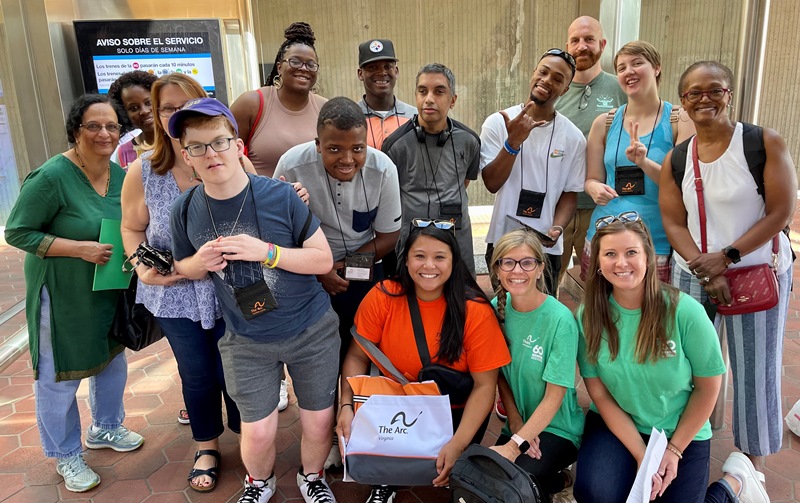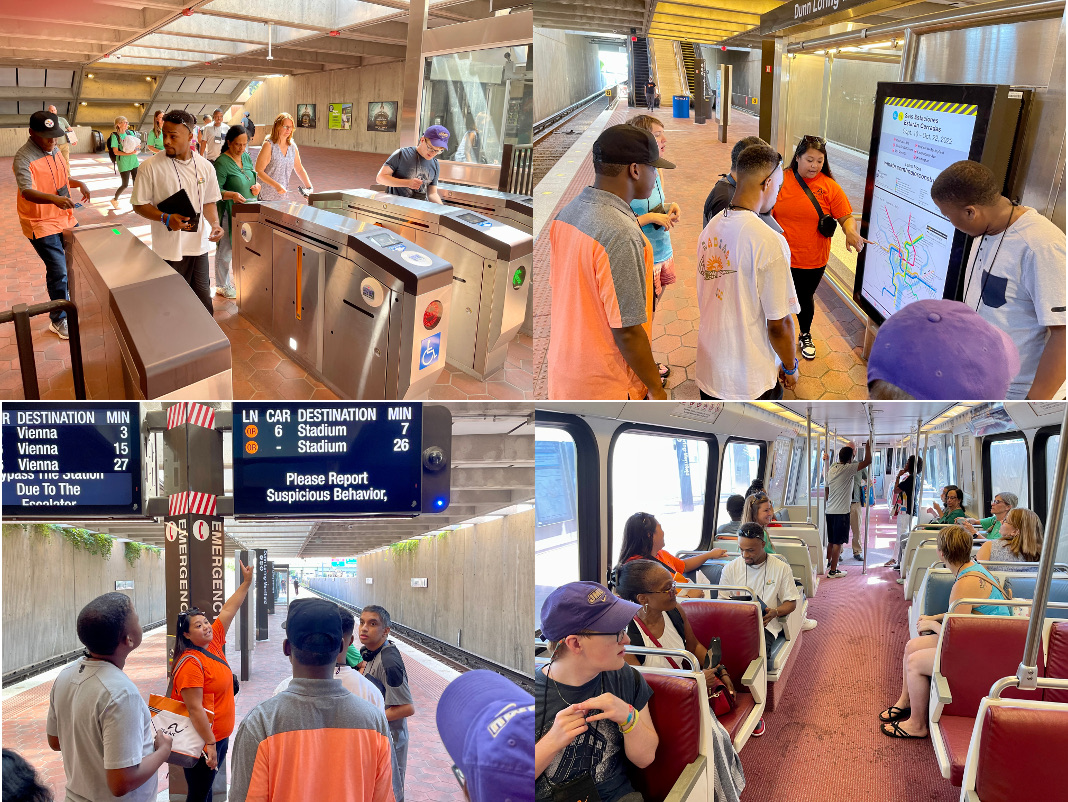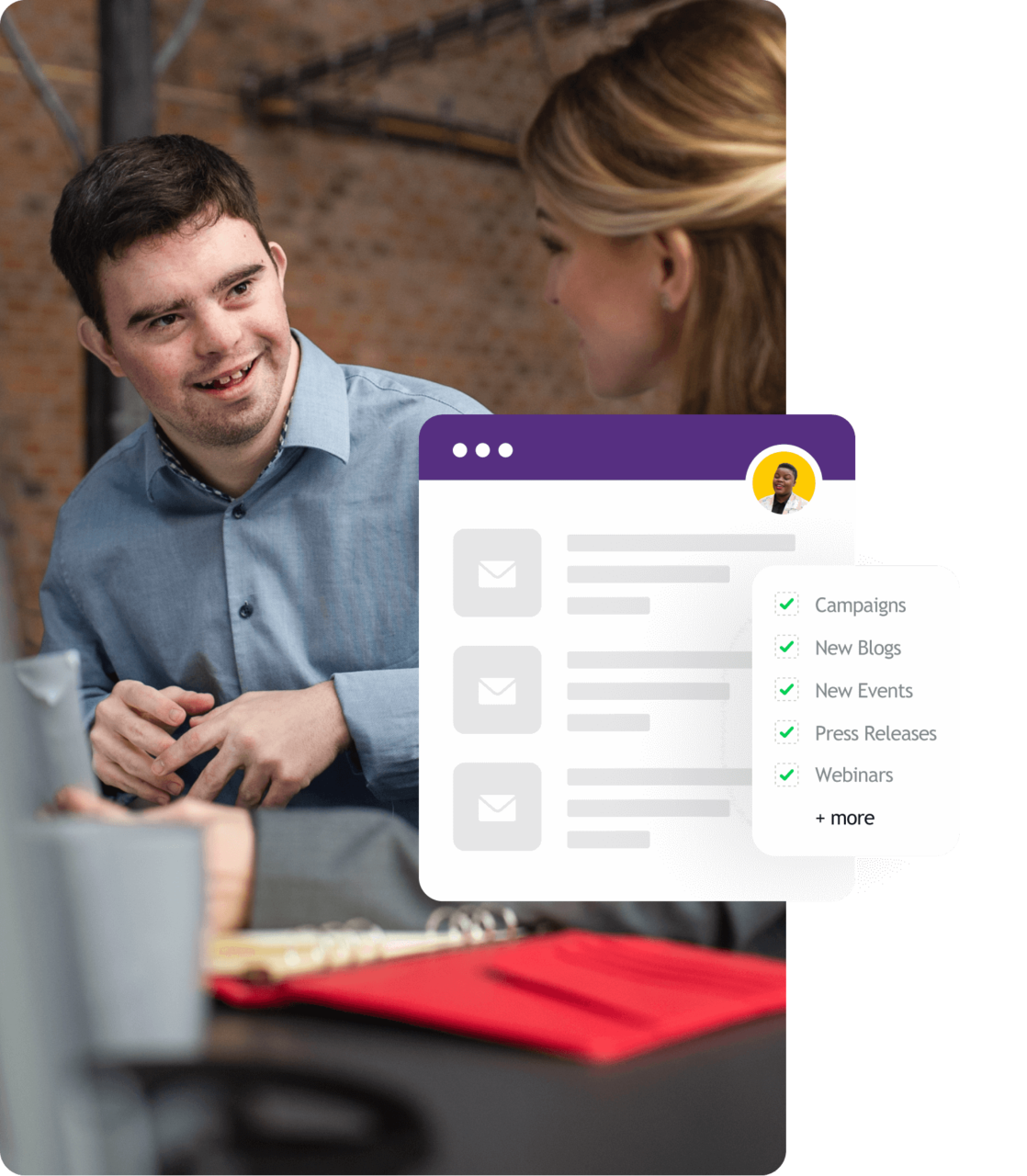
Technology has become a critical component of improving the lives of people with disabilities. Advances in mobile technology, GPS, speech augmentation and instructional programs have opened doors to individuals looking for more and better supports to enable more independent lives.
The Arc of Northern Virginia’s Technology for Independent Living team has again brought a human touch to supportive technology through its 2022 Tech Camp. A total of 16 participants attended the July and August sessions, ranging in age from 14 to 46.
The Technology for Independent Living team creates online curriculums providing 24-hour supports to individuals with intellectual and developmental disabilities (IDD). These supports come primarily through the use of the team’s Transition Suite, including their award-winning TravelMate and EmployMate technology.
This technology can be utilized as a “virtual travel trainer” or a “job coach in your pocket,” helping individuals with disabilities live more independent lives and expanding supports for service providers through the real-world application of innovative technology.
The team’s summer Tech Camp introduced individuals with disabilities to the Transition Suite technology and taught them how to use the custom lessons developed for them. More than that, though, it brought a group of unique individuals with diverse needs together into a small community with similar goals and the opportunity for social connection. As the pandemic recedes and we re-emerge back into our social lives, individuals with IDD benefit greatly from these chances to interact and make new friends.
After a week of classes and get-togethers conducted virtually, members of the Tech Camp met at Dunn Loring-Merrifield Metrorail Station to put their travel lessons to the test. Participants were provided with a Metro SmartTrip card and as a group walked through the process of checking their card balances, entering the station turnstiles, boarding a train and travelling a few stops up the line before returning. They reviewed all the processes and procedures involved and experienced the many different aspects of public transport. And they did it together, as a group of friends and trusted guides.

“I enjoyed Tech Camp because we were able to help change lives in many different ways,” said Ashley Africa, Program Coordinator for the Technology for Independent Living team. “Socially, we help the campers create new friends and build new relationships with others. We introduced technology that the campers are using daily that is helping them day by day become more independent. We helped open the eyes of some parents who didn’t think independence in certain skills was possible. We bridged a gap giving families a consistent tool to help teach skills that campers were struggling to learn or stick with.”
“Personally, I really enjoyed the social aspect of camp,” added Jennifer Schreibman, another Program Coordinator for the team. “I really enjoyed getting to know the campers and their families. Tech camp not only provided useful technology to help campers become more independent, it also created a really fun social outlet for campers. Tech Camp allowed many campers to make relationships with not only the Tech for Independent Living team at The Arc, but with other campers as well. Many campers have now joined our Arc Mentor group which meets monthly.”
Responses from participants’ caregivers and parents were overwhelmingly positive. “It was a great session that boosted the morale and a sense of independence, ‘can-do-it’ attitude in the campers” one evaluation read. “I do not give 5 ratings to classes very often,” said another, “but this class was well organized, the tech and information were very relevant and the instructors were knowledgeable and engaging. PLEASE DO THIS AGAIN SOON.”
Peter Leisen, Program Manager for the Tech for Independent Living team, sees a bigger picture when he thinks about the application of technology in the lives of people with disabilities. “What we’re doing in this camp has a big impact that’s parallel with other organizations in how we’re all able to utilize technology,” he said. “The current model was developed for people with IDD to be taken care of, to be able to function with other human beings. Now professionals in the technology field have started to address this situation innovatively, to the same as other industries using existing technology to enable people with IDD to live independently and with self determination.”
Communications Associate Rob Hudson attended some of the sessions, including the trip to Dunn Loring-Merrifield Metrorail Station. The impression he was left with was not primarily about the technology itself. “The technology solutions the participants are learning to use are fantastic, but the best resource they’re accessing is the team of talented and compassionate individuals running the program,” he said. “And they’re connecting with others like themselves and learning how differently but successfully they are all able to put these technological solutions to work. This is a long-term project, and the participants are off to an excellent start.”



